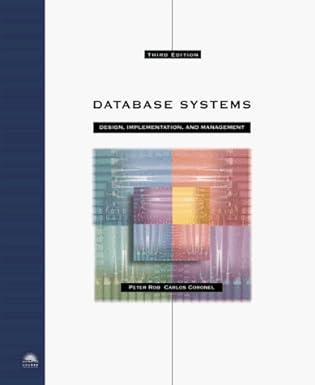Question
I know the question in below asked several times in Chegg, but nobody gave an acual solution to the problem. They just gave pseudo codes
I know the question in below asked several times in Chegg, but nobody gave an acual solution to the problem. They just gave pseudo codes or writings on paper to explain the question. As always I understand the question and I just need "a code in Python". No need for explanation.
Suppose youre consulting for a bank thats concerned about fraud detection, and they come to you with the following problem. They have a collection of n bank cards that theyve confiscated, suspecting them of being used in fraud. Each bank card is a small plastic object, containing a magnetic stripe with some encrypted data, and it corresponds to a unique account in the bank. Each account can have many bank cards corresponding to it, and well say that two bank cards are equivalent if they correspond to the same account. Its very difficult to read the account number off a bank card directly, but the bank has a high-tech equivalence tester that takes two bank cards and, after performing some computations, determines whether they are equivalent. Their question is the following: among the collection of n cards, is there a set of more than n/2 of them that are all equivalent to one another? Assume that the only feasible operations you can do with the cards are to pick two of them and plug them in to the equivalence tester. Show how to decide the answer to their question with only O (n log n) invocations of the equivalence tester. (the code will be a Divide and Conquer algorithm)
Step by Step Solution
There are 3 Steps involved in it
Step: 1

Get Instant Access to Expert-Tailored Solutions
See step-by-step solutions with expert insights and AI powered tools for academic success
Step: 2

Step: 3

Ace Your Homework with AI
Get the answers you need in no time with our AI-driven, step-by-step assistance
Get Started


